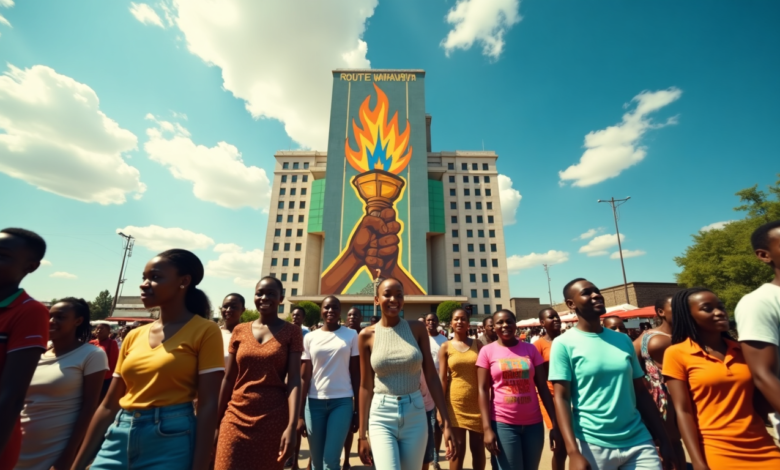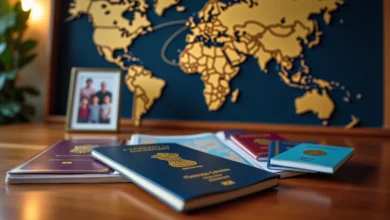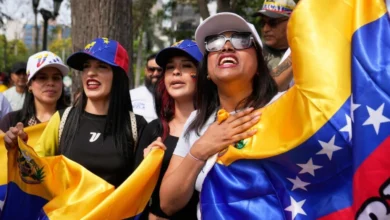
Youth Vote Overthrows Botswana President, Marking New Political Era
Young voters in Botswana led a historic change that ended the Botswana Democratic Party’s (BDP) 58-year dominance. The University of Botswana’s student movement played a significant part by mobilizing youth voters. Their efforts resulted in opposition candidate Duma Boko’s decisive electoral victory, making him the new president of Botswana.
Youth unemployment and economic difficulties tied to the struggling diamond market fueled widespread frustration among voters. The United Democratic Change (UDC) coalition captured public support with promises of job creation, higher minimum wages, and better social services. Regional observers praised this peaceful transfer of power, which now serves as a model for democratic processes throughout southern Africa.
Historic Upset: UDC Ends BDP’s 58-Year Rule
The Umbrella for Democratic Change (UDC) created a fundamental change in Botswana’s political history by securing an overwhelming victory in the October 2024 general elections. This historic win ended the Botswana Democratic Party’s (BDP) unprecedented 58-year rule.
Landslide victory for opposition coalition
The UDC secured a commanding 35 seats in parliament, well above the 31-seat majority requirement. Electoral commission officials validated the opposition’s sweeping triumph as the UDC captured 39% of total votes. Botswana witnessed its first transition of power since gaining independence in 1966 through this landmark victory.
Duma Boko becomes new president
Botswana welcomed its new president Duma Boko, a 54-year-old human rights lawyer with a Harvard Law School degree. Chief Justice Terence Rannowane made the official declaration. Boko’s political journey started when he founded the UDC in 2012 and ran for president in 2014 and 2019. The new president’s first speech after taking the oath highlighted his steadfast dedication to serve the people through better governance.
BDP’s shocking fourth-place finish
The election results showed a stunning reversal for the BDP:
| Party | Parliamentary Seats |
|---|---|
| UDC | 35 |
| Botswana Congress Party | 15 |
| Botswana Patriotic Front | 5 |
| BDP | 4 |
Outgoing President Mokgweetsi Masisi faced the defeat head-on. “We got it wrong big time in the eyes of the people,” he admitted. BDP’s dramatic fall to fourth place ended Africa’s longest continuous rule by a single party. The party secured only four parliamentary seats despite getting 31% of the vote.
Regional observers praised this peaceful transition of power. Political analyst Lesole Machacha highlighted how rare such smooth transfers are in Africa. Masisi’s graceful concession and his commitment to support the next leader strengthened Botswana’s position as a beacon of democratic stability.
Economic Factors Driving Voter Discontent
Botswana’s diamond sector economic downturn is a vital reason behind the dramatic political move. The country’s financial challenges have become evident through recent data and have propelled voter dissatisfaction with the incumbent government.
Diamond Market Slump Affects Growth
Debswana’s diamond sales plunged by a dramatic 48% decline in the first quarter of 2024. The company, a joint venture between the government and De Beers, faces challenges from reduced global demand. Lab-grown diamonds create additional competition, especially in the Chinese and American markets. These market pressures have pushed growth forecasts down significantly. The numbers tell the story – from a robust 5.8% in 2022, growth projections have fallen to 3.8% in 2023.
Rising unemployment, especially among youth
Botswana’s young population faces severe employment challenges:
| Year | Youth Unemployment Rate | Annual Change |
|---|---|---|
| 2023 | 45.41% | +1.90% |
| 2022 | 43.51% | -0.98% |
| 2021 | 44.48% | +2.95% |
The national unemployment rate has reached nearly 26%, and young citizens struggle the most to find jobs. Young Batswana experience a much higher job-seeking rate at sixty percent, while older citizens maintain a lower rate of 24%.
Calls for economic diversification
Diamonds dominate the country’s exports at 92%, which reveals significant economic vulnerabilities. Several challenges stand in the way of economic diversification:
- Underdeveloped infrastructure
- A limited production base that cannot support the workforce
- Heavy reliance on government jobs
- Weak growth in manufacturing and services
The World Bank emphasizes that the economy needs to change toward diversification. The private sector and manufacturing industries must lead this transformation to improve productivity and drive innovation.
Smooth Democratic Transition Sets Example
Botswana’s peaceful transfer of power has become a remarkable example for democratic transitions in Africa and represents a most important milestone in the continent’s political progress.
Masisi’s graceful concession
President Mokgweetsi Masisi showed exceptional democratic leadership when he conceded defeat before the final election results. “I concede the election,” Masisi declared at an early-morning press conference. His commitment to democracy was evident as he expressed pride in the democratic process and willingly stepped aside for a smooth transition, despite his hopes for a second term.
Peaceful handover of power
The power transition happened smoothly and effectively:
| Phase | Action |
|---|---|
| Day 1 | Masisi’s concession call to Boko |
| Day 2 | Official announcement by Chief Justice |
| Day 3 | Transition team formation |
| Day 7 | Presidential inauguration |
President Duma Boko celebrated this smooth transfer of power and said, “Botswana today sends a message to the whole world and says democracy is alive here, democracy is in action.” The outgoing president understood his historic duty well. His leadership ensured a successful first governmental change since 1966.
Regional implications for long-ruling parties
Piers Pigou of the Institute of Security Studies in Pretoria highlighted Botswana’s transition significance for neighboring countries. “The accelerated and smooth transfer of power should surprise no one given Botswana’s pedigree,” he said. This successful transition showed that:
- Public institutions can protect democratic integrity independently
- Single-party ruled nations can transfer power peacefully
- Democratic systems remain strong under political pressure
The transition’s success appeals to southern African nations that still face challenges with established ruling parties and power transitions.
UDC’s Vision and Campaign Promises
UDC has revealed a bold reform agenda that will revolutionize the economy and boost social welfare. President-elect Duma Boko’s coalition brings forward a complete package of promises that wants to tackle Botswana’s pressing challenges.
Job creation pledges
UDC promises to create 100,000 jobs during their first year after taking office. Their ambitious plan aims to expand this number to 500,000 jobs across a five-year period. Their comprehensive employment strategy focuses on several key areas:
- Youth entrepreneurship programs and creative industry expansion
- Economic opportunities for marginalized communities
- Programs that encourage self-employment
- A large-scale housing project targeting 100,000 new homes that will boost construction jobs
Minimum wage increase
A new administration will implement substantial reforms to minimum wage rates:
| Category | Current Rate | Proposed Rate | Increase |
|---|---|---|---|
| Basic Minimum | BWP 1,500 | BWP 4,000 | 166.7% |
| Agricultural Sector | BWP 1,500 | BWP 4,000 | 166.7% |
| Domestic Service | BWP 1,500 | BWP 4,000 | 166.7% |
Improving social services and judiciary
The UDC has placed healthcare transformation at the heart of its social service reforms through a national health insurance scheme that covers all citizens. This ambitious program will deliver fair and effective medical care that could make Botswana a healthcare leader in the region.
The new administration will tackle court system modernization and reduce case backlogs. Their judicial reforms include:
- Digital case management systems rollout
- New specialized corruption courts
- Stronger judicial independence
- Faster legal process resolution
The coalition will cut household utility costs by 30% on water and electricity bills. Their government will also help citizens manage mounting household debt through new credit laws that include debt relief programs and ways to restructure existing loans.
President-elect Boko believes these changes will help citizens break free from economic hardship and join the mainstream economy. The UDC’s detailed plan combines quick relief measures with deeper structural changes that tackle the root causes of Botswana’s economic and social challenges.
Botswana has witnessed a defining moment in African democracy. Youth participation and economic pressures reshaped national leadership peacefully. The UDC coalition won decisively and ended the BDP’s 58-year rule. Their victory highlighted widespread concerns about unemployment, overdependence on diamond markets, and social inequality. President Duma Boko rose to power with strong backing from young voters, which created a clear mandate to diversify the economy and reform social systems.
The smooth power transition proves Botswana’s democratic maturity and provides crucial insights for other African nations struggling with political changes. The UDC’s bold agenda targets job creation, higher wages, and better social services. Yet implementing these plans amid global economic uncertainty remains challenging. Their success hinges on striking the right balance between quick reforms and lasting structural changes while protecting the democratic principles that made this historic transformation possible.






